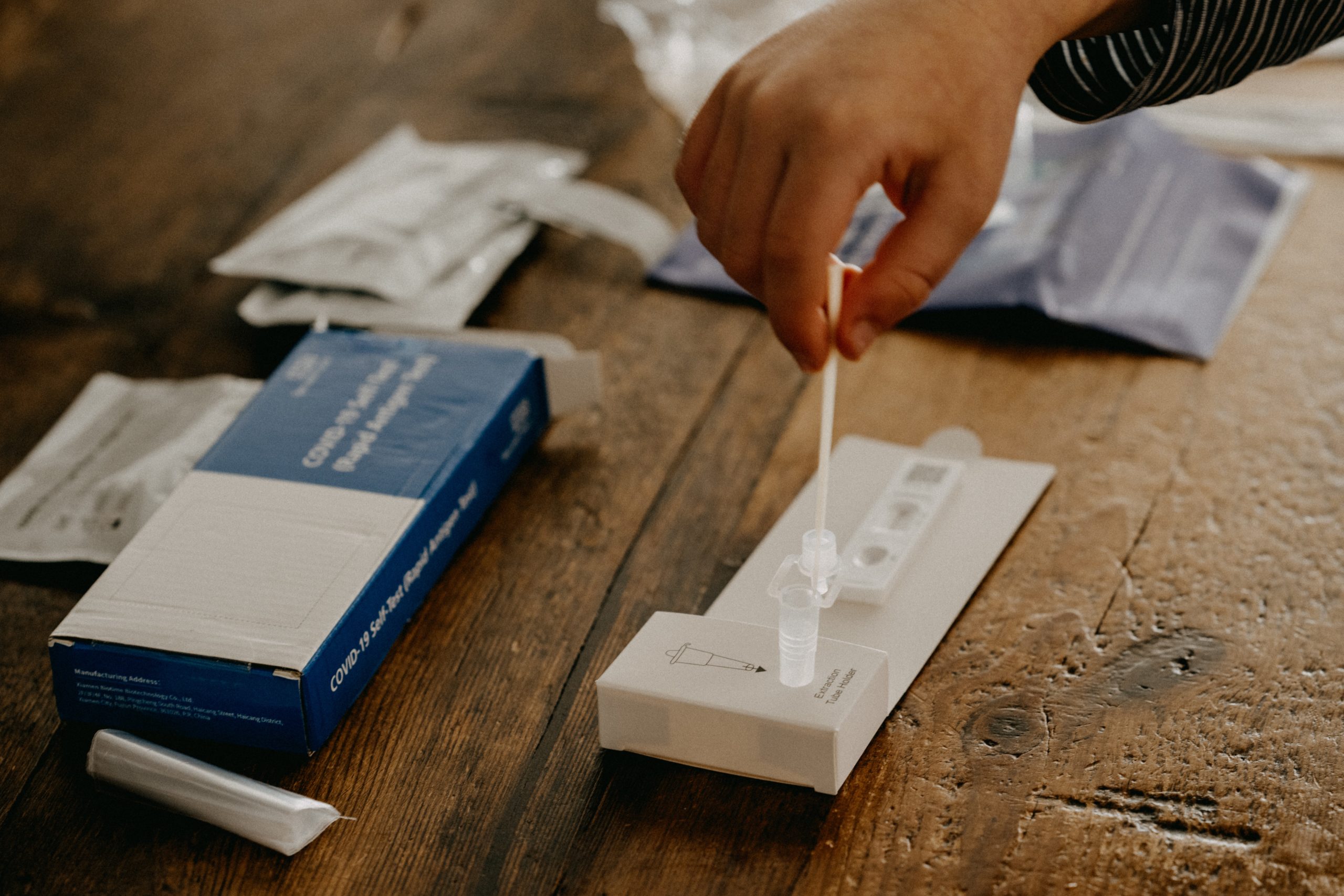Cerys Jones
A new variant of COVID-19 that was first identified in November, and reported to the World Health Organisation by South Africa, has been named ‘Omicron’ and classifies as a variant of concern by WHO.
Countries including the UK, Germany, Italy, South Africa, Belgium, Botswana, Portugal, Denmark, the Netherlands, the Czech Republic and Hong Kong have already identified cases of Omicron (named after a Greek letter), and some have introduced travel restrictions to attempt to stop it from spreading further.
Why are some concerned about Omicron?
Several variants of COVID-19 have emerged throughout the pandemic, with the most worrying classified as ‘variants of concern’, or VOCs, by the WHO.
Omicron has been classified as a VOC because its mutations mean it could be more infectious and there might be an increased risk of reinfection. In other words, those who have already had coronavirus might not have the same immunity to this variant.
The variant’s detection has coincided with a rise in cases in South Africa, leading to concerns the two could be linked. Some mutations could also cause the virus to resist antibodies, meaning vaccines could be less effective against it.
If the new variant is: more transmissible, causes more severe illness, is resistant to vaccines, or less responsive to existing treatments; this could be dangerous for public health.
Why are some not as concerned?
However, the variant has been discovered so recently that it is too soon to tell if most of this is the case. There are variants of COVID-19 that don’t end up causing severe problems – we simply aren’t sure yet if this will be one of them. Scientists are still working to understand its transmissibility, responsiveness to vaccines and treatments, and how ill it makes people.
Vaccine manufacturers have expressed hope that, even if current vaccines are less effective against Omicron, they will be able to adapt their vaccines fairly quickly to deal with this.
Finally, the country where the variant seems most prevalent is South Africa. The vaccination rate there, is only 24% compared to almost 70% in the UK. It’s unclear what effect the variant will have in countries like the UK, where vaccination rates are high.
What does the WHO say?
In their statement about the classification of Omicron, the WHO called on countries to take several steps; these include enhancing surveillance and sequencing (a method that can help identify variants), submitting genome sequencing to a public database, reporting cases of the variant to the WHO, and investigating and assessing what effects the variant could have on the pandemic.
They have also reiterated the importance of individuals taking precautions against COVID-19.
Individuals are reminded to take measures to reduce their risk of COVID-19, including proven public health and social measures such as wearing well-fitting masks, hand hygiene, physical distancing, improving ventilation of indoor spaces, avoiding crowded spaces, and getting vaccinated.
– World Health Organisation
How is the UK responding?
Several countries have introduced travel restrictions on Southern African nations. The UK has put 10 African countries on the travel ‘red list’, meaning people should not travel to these countries and will need to follow extra testing and hotel quarantine if they do so.
International travel rules are changing for all other destinations too – people travelling into the UK will need to take a PCR test by the end of their 2nd day in the country and self-isolate until they get a negative result. They will also need to fill in a passenger locator form.
Any close contacts of someone with the Omicron variant will need to self-isolate for 10 days, even if they’re fully vaccinated.
Face coverings will be mandatory again in England’s shops and on public transport, and the JCVI will look at overhauling the booster vaccine programme. The new restrictions for England will be reviewed in three weeks.
NHS guidance in England has also been updated to recommend that people ‘may wish’ to take lateral flow tests before going to ‘high risk’ places – such as to visit somebody who is vulnerable to the virus.
Nobody knows quite yet how much the Omicron variant is going to affect the pandemic, or life here in the UK. It’s certainly not a threat that should be dismissed. The hope is that the high levels of vaccination in the UK will prevent the pandemic from reaching its levels of last winter.
*All information was correct at the time of this article being written and published on the 29 November 2021 at 11:40am.
Featured image courtesy of Annie Spratt on Unsplash. No changes were made to this image. Image license can be found here.

